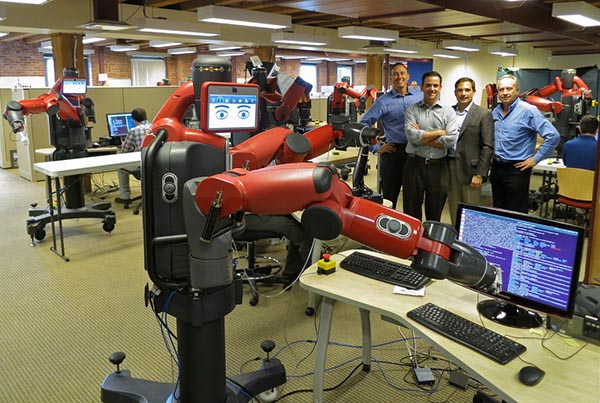This year has been particularly charged with emotion. The stars that have lit up our Universe for a decade, or a century, have slipped away, one after another: Prince, Bowie, Princess Leia and her Mother. Stephen Hawking, who was doomed to an early death more than 50 years ago, celebrated his 75th birthday this past weekend. One never knows what life puts in our path… Hawking thinks he knows, though, and he is warning us. Hawking, indeed, seems to have become an Oracle, the Faust of the 21st Century. This is how, in 2015, he and Berlioz’s Faust were simultaneously reinvented under the demiurgic hand of the director Alvis Hermanis and the bemused eyes of its Parisian audience at the Opera Bastille in Paris. This was nearly one year ago. What’s next? The one, whose existence and career as a physicist has been made possible thanks to technology, as he likes to recall himself, is now warning us about the consequences of accelerating technological change. In so doing, he is making visible what has been the slogan of my field (Science and Technology Studies) from its inception: that the political, the social, the scientific, and the technical are always intertwined. This we should never forget.

Baxter the Industrial Robot. Courtesy of Steve Jurvetson (CC BY 2.0).
It seems that for Hawking, political acts such as voting, and in particular voting for candidates and policies on the right, for more protectionism, more walls, more hierarchy, in short, voting for Trump or Brexit is a direct response to the consequences of globalization and accelerating technological change. Automation in the workplace has already decimated jobs, but according to Hawking the accelerating pace of Artificial Intelligence is going to create more and more job destruction, while the money making machine that accompanies it will profit only the few who lead and create it, thus engendering more inequality and feeding the reaction of the masses against the elite. Moreover, the Internet, whose financial benefits are in the hands of a few, makes visible, at all of our finger tips, the all too screamingly-apparent inequality: Hawking reminds us that more people today have a smart phone than access to clean water. Inequality inherited and magnified through the financial crash (and, I would add, socialism for the rich and brutal capitalism for the poor), has also made the people see their economic position declining and the possibilities for growth disappearing. Inequality, then, again and over again… and more threats: climate change, overpopulation, the decimation of other species, epidemic disease, acidification of the oceans, to name but a few. Whew! The task is Dantesque…
What is to be done, then? According to Hawking, we need to listen to the war cry and the reaction of the people, we need humility, we need to retrain people for a rapidly changing world and ‘support them financially while they do so.’ Mainly, we need to work together. To this, one might add that we need to reinvent education and to move it outside the walls of the University; we need to reinvent jobs and disentangle work from professions so that skills won’t be attached to a profession anymore, but might travel and be practiced wherever they are needed. We need to rethink the notion of cooperation at the deepest level, to think up different ways of cooperating in different settings. We need to do more to study and understand how things function on the ground. We need to mix up and proliferate our forms of expertise to understand a world that is everyday becoming more complex. It is “the we” that we have to reinvent. “Yes We Can” was a good slogan, it’s not because Obama is leaving Office that we have to see his slogan leave with him.
Happy Birthday Professor Hawking!
